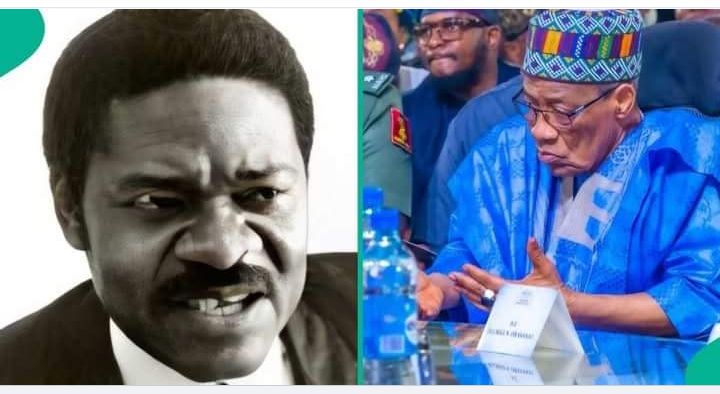Former Nigerian Head of State, General Ibrahim Babangida, has once again denied any involvement in the assassination of renowned journalist Dele Giwa, which occurred during his tenure.
In his recently launched autobiography, “A Journey in Service”, Babangida expressed his belief that the truth behind Giwa’s murder would eventually come to light.
Babangida criticized the media’s handling of the case, accusing it of fostering an adversarial relationship with the government, which he claimed hindered the investigation.
“The media’s hysteria did not help the investigation into Giwa’s murder,” Babangida wrote. “The Nigerian media has long maintained an ‘us versus the government’ stance, often presuming the government’s guilt before evidence is presented.”
Babangida noted that despite the Obasanjo administration reopening the case at the Oputa Panel on Human and Civil Rights, no substantial evidence was presented.
“Like many mysterious murders, Giwa’s case remains unsolved. I hope the truth will be uncovered, whether in our lifetime or beyond,” he said.
The launch of Babangida’s autobiography also served as a platform to unveil the IBB Presidential Library Project, which received significant financial backing from Nigerian business elites.
Notably, billionaire industrialist Abdul Samad Rabiu pledged N5 billion, while Africa’s richest man, Aliko Dangote, donated N2 billion with a further pledge of N2 billion annually over the next three years, totaling N8 billion.
Other prominent donors included former Defence Minister TY Danjuma, who pledged N3 billion, and businessman Arthur Eze, who contributed N500 million.
The IBB Presidential Library aims to preserve Nigeria’s political, military, and artistic history, with a focus on Babangida’s eight-year rule.
The event was attended by President Bola Tinubu, former Nigerian leaders Yakubu Gowon, Abdulsalami Abubakar, and Goodluck Jonathan, as well as former Ghanaian President Nana Akufo-Addo and former Sierra Leonean President Ernest Koroma. Former Vice Presidents Atiku Abubakar and Yemi Osinbajo were also present.
In his remarks, President Tinubu emphasized the importance of documenting Nigeria’s leadership history and acknowledged Babangida’s impact on the nation.
Former Vice President Osinbajo provided a detailed review of the autobiography, which offers insights into Babangida’s tenure, including the controversial annulment of the June 12, 1993, presidential election.
About Dele Giwa
Giwa was a prominent Nigerian journalist and editor, best known for founding Newswatch Magazine, one of Nigeria’s most influential news magazines.
Born on March 16, 1947, in Ife, Osun State, his career in journalism was marked by his fearless reporting and commitment to uncovering the truth.
He began his journalism career in the 1970s, working for various newspapers, including The Daily Times and The Sunday Concord, where he honed his skills and gained a reputation for his incisive writing and investigative journalism.
His work often focused on holding those in power accountable, making him both respected and feared in political circles.
In 1984, Giwa co-founded Newswatch Magazine alongside Ray Ekpu, Dan Agbese, and Yakubu Mohammed.
The magazine quickly gained a reputation for its bold and in-depth reporting, tackling sensitive issues such as corruption, human rights abuses, and political scandals.
Under Giwa’s leadership, Newswatch became a trailblazer in Nigerian journalism, setting new standards for investigative reporting.
The magazine’s success was largely due to Giwa’s vision and dedication to journalistic integrity, as well as his ability to assemble a talented team of writers and editors.
However, Giwa’s outspoken nature and willingness to challenge the status quo made him a target of the Nigerian government.
On October 19, 1986, Giwa was tragically assassinated when a parcel bomb delivered to his home exploded, killing him instantly.
Many believed his assassination was linked to his investigative work and his criticism of the military regime led by General Ibrahim Babangida.
Despite numerous investigations, the perpetrators of his murder have never been brought to justice, leaving his death as one of Nigeria’s most infamous unsolved crimes.







